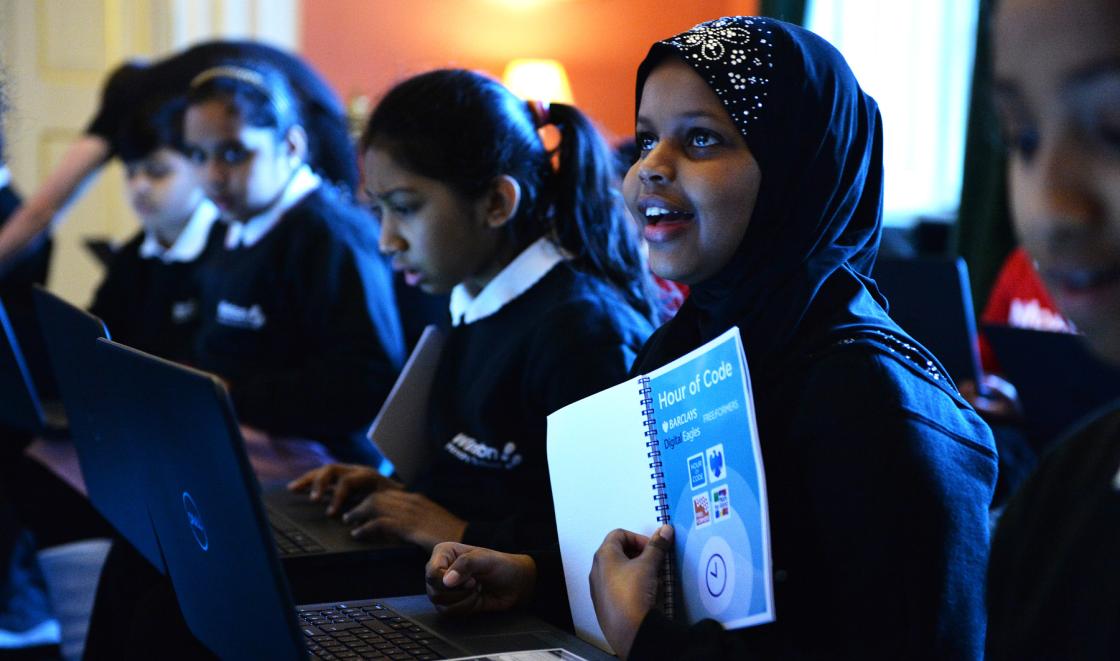ARC South London researchers have worked extensively in Lambeth and Southwark, two inner south London boroughs which are among the most deprived in the country. They found that among families whose children have common ongoing health conditions, such as asthma and eczema:
- 38% reported housing concerns
- 25% had problems paying household bills
- 8% don’t have enough food
- 12% of parents expressed concerns about their own mental health.
Children from these families were more likely to attend hospital emergency departments for relatively minor conditions, and to experience poor management of long-term conditions.
We know that this group of vulnerable children and young people are a priority, and NHS strategy agrees. But we don’t know enough about how best to help children who have high and complex needs, offering health and care services and systems that prevent problems and provide effective joined-up care and support.
Dr Ingrid Wolfe, children and young people's health theme
ARC South London’s children and young people’s research theme is dedicated to designing and testing new and better ways of improving outcomes for this vulnerable group.
This research theme’s work builds on the local Children and Young People’s Health Partnership (CYPHP), a major applied health research clinical-academic programme in south London. This is a partnership of local clinicians, parents, carers, children and young people, researchers, commissioners and providers. The aim is to bring about change by testing and proving the benefits of a new model of care and new approaches to the way health care is delivered.
Aim of our research
The researchers aim to improve the health and social care system for children and young people who have complex needs and multiple health problems. These children often face additional risks and challenges due to the social or material conditions of their family life and the wider community. The team will design and test new ways to improve care – and health outcomes - for two groups of often overlooked children:
- children with disabilities and/or more than one long-term condition
- children who experience adverse conditions that make them less likely to develop optimally by the time they start school.
How this work is addressing multimorbidities and inequalities
One of the theme's projects focuses on children living with more than one long-term condition. This is important because there are rising numbers of children with multiple health problems, such as non-communicable diseases, behavioural and emotional problems. In addition, much health policy in this area focuses on adults and elderly people living with multimorbidities, neglecting the earlier stages of life.
The most difficult health problems are more common among children and young people who face challenges because of their social or material circumstances. The theme's work in designing and testing new ways of improving health focuses on addressing these inequalities and supporting children and young people who are most in need.
Mapping stakeholders in south London
The researchers have identified more than 200 organisations, services and key individuals working in children and young people’s health and care across the 12 boroughs of south London. They have produced an interactive digital map of these organisations and services, providing a brief description and contact details. The map draws on information in the public domain in February 2020. Please contact jenny.greenwood@kcl.ac.uk for more information or feedback.
Our collaborators
The team are collaborating with a wide range of south London’s healthcare providers and commissioners from hospitals, community health, and primary care. They are also working with social workers and public health professionals in local government, researchers at the London School of Hygiene & Tropical Medicine and the University of New South Wales, Australia, as well as other ARCs across the country.
Involving patients, services users, carers and public
From the earliest stages, this research was planned together with children, young people and families (as well as doctors, nurses, social workers and commissioners). The team will continue working together in designing the interventions, and in planning and conducting evaluations.
How we are taking this work forward
We are extending our work using data and digital assets to strengthen and build resilient health systems, and align with national and local priorities. Using data-driven approaches, we will identify national patterns and trends of multimorbidity among children and young people under 25 years' old. We will then co-produce an intervention to reduce the impact of multimorbidity in children, building on our research about local child health teams and community health workers.



